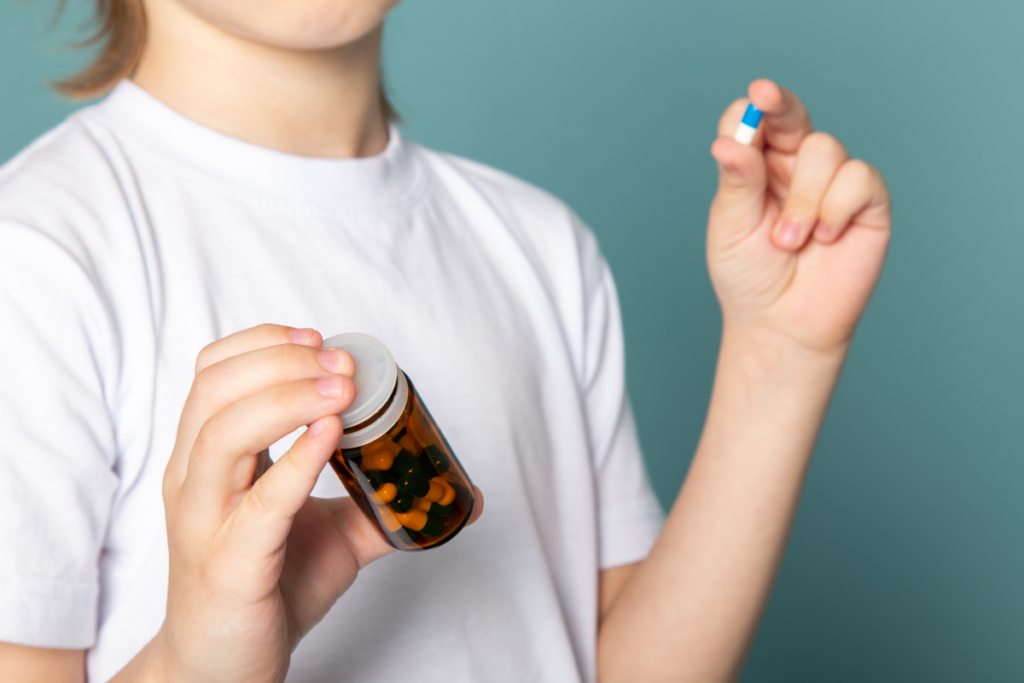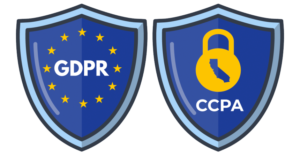Poisoning can happen to people of all ages, but incidences disproportionately affect children younger than six years old, with peak poison frequency occurring in one and two-year-olds. Here are a few things to know about opioid poisoning in young children and a few preventative measures you can take to keep your kids safe.
Poisoning and Children
According to the 2020 Annual Report of the American Association of Poison Control Centers’ National Poison Data System (NPDS): 38th Annual Report, pain medications are among the most common substances implicated in poison exposures in children younger than six years old, following cosmetics/personal care products and cleaning substances.
Opioid poisoning is particularly concerning in children because they can have delayed onset of symptoms. They may also experience more severe and prolonged toxic effects. Symptoms or complications of opioid poisoning in children may include:
- Respiratory disorders like apnea, respiratory failure, and respiratory depression
- Psychiatric or nervous system disorders, such as agitation, seizures, and coma
- Cardiac disorders, like tachycardia, bradycardia, and cardiac arrest
Pain medications accounted for 17.6 percent of pediatric fatalities reported to Poison Control between 2016 and 2020.
How to Keep Children Safe From Opioid Poisoning
When it comes to poisoning in children, most incidences are unintentional and occur in the home. They are usually the result of kids finding pills that their parents or caregivers leave within reach. Here are a few tips to keep young children safe from opioid poisoning.
Keep prescription opioids in a safe place. Prescription opioids, and any other medications or supplements for that matter, should be kept out of sight and out of reach for children. For added safety, you may even want to consider locking them away.
Discard unused medications. Unused or expired opioid mediations can end up with people they weren’t intended for, including small children. If you have medications that you no longer want or need, drop them off at your local drug collection site.
For more information about drug disposal options, CLICK HERE.
Only use opioids as a last resort. If your child’s physician prescribes them opioids, ask the physician if opioids are the best treatment for your child. Many times, alternatives like ibuprofen and naproxen can be just as effective and come with fewer side effects.
Preventing Opioid Poisoning in Children with ZICOH
ZICOH was designed with opioid safety in mind. Features like two-factor authentication prevent children, and anyone else for that matter, from accessing medication that was not intended for them.
For children who are prescribed opioids, features like dose-controlled delivery prevent them from taking a larger dose or taking the medication more frequently than prescribed.
Both features can translate to a safer way for children to consume opioids and allows parents to keep their children safe from accessing these potentially dangerous medications.
When to Call a Doctor and When to Call 9-1-1
If your child is prescribed opioids for their severe or moderate pain, it’s important to know when to call a physician or 9-1-1 if they experience side effects.
The following symptoms may indicate that your child is taking the wrong dose, in which case you want to contact your child’s doctor.
- Intoxicated behavior, such as confusion, slurred speech, or stumbling
- Feeling or acting groggy
- Unusual snoring, gasping, or snorting during sleep
- Difficulty waking up from sleep or staying awake
Signs of an overdose include:
- Trouble breathing
- Slow, unusual, or stopped heart rate
- Inability to wake or talk if awake
- Gurgling noises coming from the throat or mouth
- Limp body
- Pale or clammy face
- Blur or purple fingernails or lips
In the event of an overdose, it’s important to call 9-1-1 as soon as possible. Every minute counts during an overdose and can be the difference between life and death or serious brain damage.
Every minute counts during an overdose and can be the difference between life and death or serious brain damage.
Poison Control
If you think you or a child may have swallowed too much medicine or someone else’s medicine, visit Poison Control’s webPOISONCONTROL online tool for guidance or call Poison Control immediately at 1-800-222-1222. Don’t wait until the child becomes visibly ill because by then, it may be too late to prevent a tragedy.


